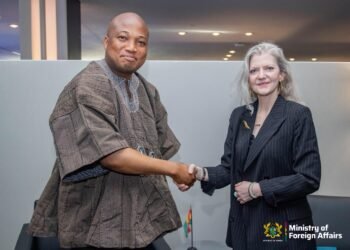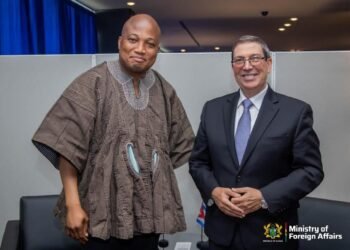Mumtaz Zahra Baloch, the Spokesperson for Pakistan’s Ministry of Foreign Affairs, has disclosed that her country’s plan to deport illegal migrants is not aimed at Afghans only.
This follows after Pakistan unexpectedly announced on Tuesday that all migrants, including the Afghans, without valid documentation will have to go back to their countries voluntarily before October 31, 2023, to avoid mass arrests and forced deportation.
This sent a wave of panic among those living in this Islamic country without papers and drew widespread condemnation from rights groups. Activists say any forced deportation of Afghans will put them at a grave risk.
Baloch said, “We have been hosting Afghans refugees generously for the past four decades” when millions of them fled Afghanistan during the 1979-1989 Soviet occupation.
Those 1.4 million Afghan nationals who are registered as refugees in Pakistan need not worry, she added.
“Our policy is only about … individuals who are here illegally, no matter what their nationality is. But, unfortunately there has been a misunderstanding or misrepresentation and for some reason people have started associating this with Afghan refugees.”
Mumtaz Zahra Baloch
“The laws in Pakistan are similar to laws in many other countries,” Baloch added.
According to the Spokesperson for Pakistan’s Ministry of Foreign Affairs, Pakistan will carry out its recently announced plans to deport all migrants who are in the country illegally, including 1.7 million Afghans, in a “phased and orderly manner.”
“It will be done in phases,” Baloch told reporters in Islamabad on Friday.
She added the process would follow an orderly manner, in contrast to what she called some misconceptions that all of them would just be expelled in one go.
She said it could start with people with criminal records, such as someone involved in a crime or smuggling. “We will be looking into each case individually,” the spokesperson added.
Baloch said some of the migrants without papers, including Afghans, have already started going back to their countries. “We are allowing a grace period until” the end of the month, she said.
Amnesty International on Thursday asked Pakistan to allow the Afghans to continue to live in the country while the day before, U.N. Secretary-General, Antonio Guterres’ Spokesman expressed concerns about the new policy.
In Kabul, the Taliban government’s chief spokesman, Zabihullah Mujahid, has also criticized Pakistan’s announcement, saying it was “unacceptable” and that Islamabad should reconsider the decision.
Although Pakistani security forces and police have routinely been arresting and deporting Afghans who have sneaked into the country without valid documents in recent years, this is the first time that the government has announced plans for such a major crackdown.
The developments come amid a spike in attacks by the Pakistani Taliban, known as TTP who have hideouts and bases in Afghanistan but regularly cross into Pakistan to stage attacks on Pakistani forces.
Baloch Confirms Meeting Between Afghan And Pakistan Foreign Minister
Baloch also said that Pakistan’s Foreign Minister, Jalil Abbas Jilani, held talks in China, where he is currently on an official visit, with Afghanistan’s Taliban-appointed Foreign Minister Amir Khan Muttaqi.
During the meeting, the caretaker foreign minister underlined Pakistan’s commitment to improving bilateral ties with Afghanistan.
He also emphasised the need for a “collaborative spirit through collective strategies” to address the issues threatening regional peace and security.
“Their meeting was very productive, she said without elaborating and urged the Afghan Taliban to disarm the TTP so that the Afghan territory would no longer be a launching pad for attacks in Pakistan.
She, however, insisted that the planned crackdown on migrants who are in Pakistan without proper authorization was not aimed at bargaining with the Afghan Taliban authorities.
“Absolutely, this is not the case at all … we only want all illegal migrants to go back,” she said.
READ ALSO: Jailed Iranian Activist Awarded 2023 Nobel Peace Prize



















